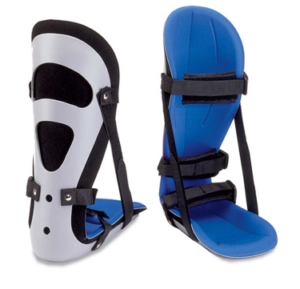What is a Detailed Written Order?
A detailed written order is a document used to authorize what was ordered by a patient’s treating/prescribing physician. Detailed written orders must include all billable items, accessories or supplies related to the base item that is ordered.
Some DME suppliers use prepopulated forms for their detailed written orders. If the supplier provides their own form, on these forms, the final document that is signed by the physician must clearly state what item(s) is being ordered for the patient. This may be done in two ways:
• The DME supplier may indicate the items that are being provided before sending the form to the physician. The physician can then review the form and accept the items marked by the supplier or, make any necessary changes. The physician must then initial and date the revised entries.
• The DME supplier may send the form to the physician without any items selected and ask the physician to indicate which items are being ordered. The physician must make their choice very clear.
In each case, the physician must sign and date the form before returning it to the supplier. A DWO is required prior to billing. All DWO’s must include: Patient/Beneficiary’s name, date of the order, detailed description of all items, prescribing physician’s signature and date.
Friendly Reminders
• Medicare requires an order for every item of durable medical equipment.
• Signature and date stamps are not allowed. Signatures must comply with the CMS signature requirements outlined in PIM 3.3.2.4.
• If a DME supplier does not have a faxed, photocopied, electronic or pen and ink detailed written order signed and dated by the prescribing physician in their records before they submit a claim to Medicare, the claim will be denied.
• If the claim is for an item for which an order is required by statute (e.g., therapeutic shoes for diabetics), the claim will be denied as not meeting the benefit category and is therefore not appealable by the supplier (see CMS Manual System, Pub. 100-04, Medicare Claims Processing Manual, Chapter 29).
• For all other items, if the DME supplier does not have an order that has been both signed and dated by the treating physician before billing, the item will be denied as not reasonable and necessary, except for items requiring a written order prior to delivery. If an order is taken verbally and sent to the physician for a signature and date, there are two documents: the verbal order and the written order with the physician’s signature and date. If a beneficiary comes in with a prescription containing all the elements of a detailed written order, then one document is on file. It is important to remember that if an item is dispensed based on a verbal order and a written order is provided afterwards, both orders must be retained. It is not adequate to only have a written order after dispensing an item. There must be documentation to show the verbal order was received prior to dispensing the item.
Resources:
https://med.noridianmedicare.com/web/jddme/topics/documentation/detailed-written-orders
https://cgsmedicare.com/jc/pubs/news/2010/0410/cope12010.html





